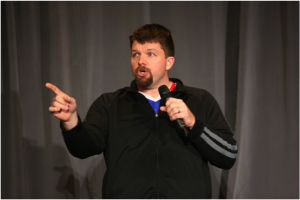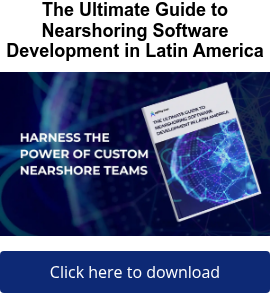
I’m very excited next week to return to the Lean Startup Conference in San Francisco. Last year I was an Ignite speaker at the conference, and as I have said to many others since then, it was the best conference I’ve been to as both an attendee and a speaker.
This year I have the honor of returning as one of the conference mentors. I’ll be available on Monday and Tuesday afternoon for attendees to sign up to talk with me about a variety of topics. The meetings are 10 minutes, so they are super focused, but I’ve offered to help people with questions about agile development, prototyping, remote usability testing, and distributed development.
You’re welcome to ask me anything, but here are 3 questions I hope you’ll ask me.
3 questions I hope you ask me
1) How do you build a development contract that supports pivots?
Startups often operate under tight budgets, but if you plan to have some development or design done outside your core team, then the details of the contract are important for more than just financial reasons. They determine how flexible your development partner can be with you, and so this also applies to enterprises trying to apply lean startup principles. The key is to throw away any notion of Fixed Price or Fixed Scope contracts. You don’t know what you are going to build yet because you probably still have a lot to learn from your customers. The contract should allow for multiple iterations of work and time to gather feedback from customers. Putting in a budget cap or flat monthly fee is the simplest way to protect you from spending too much but still allow for frequent scope changes.
2) Agile engineering in a Lean Startup: To automate or not?
I’m a big fan of agile development methods, and my Ignite talk last year was to encourage people to deploy software faster and work in shorter iterations. A great practice in agile engineering is to do test driven development and automate test suites to enable fast regression testing of legacy code bases. One benefit is this allows the organization to deploy frequently while still maintaining a high degree of confidence in the code base. But is the extra time required to implement these worth it in a startup? My belief is that it’s well worth your time to automate deployment scripts and testing/staging environments, because you will need to deploy frequently if you are running a lot of A/B tests or lean experiments. But in an early stage project, it is not worth it to automate very much of the testing, because you are likely to drastically change that UI after customer feedback. This could be a controversial statement to many people, but I think you should limit initial test automation to be on select “happy paths” or “smoke tests” so that you don’t create extra rework until that area of the application stabilizes a bit.
3) At what point do I stop delaying development?
Despite the fact that we are a development company, I believe you should delay development as long as possible. It’s expensive and it’s risky. Make sure that you test as much as you can with customers before you invest in serious coding. Landing pages, paper mockups, wufoo forms, etc are all ways that you can learn more about what your customers value before you spend real money having someone build your prototype. When you do get started on real development, remember that you still have a lot to learn though and leave room in your budget for some rework to accommodate that learning.
Although I will spend a lot of my time at the Lean Startup Conference as a mentor, I’m also looking to learn a lot too. Here’s what I’m hoping for…
3 Things I’m looking for at the Lean Startup Conference
1) How do you do remote usability testing?
I admit I have an agenda here, but I’m not going to tell you what it is. That’s because I am doing some customer discovery now to learn about the challenge that companies (large or small) face when they try to do remote usability testing. If you have any experience in that area, I’d love to hear about it.
2) What do you wish development companies understood about working with startups?
Again, a little bit of an agenda here but it’s because I want to get better at what we do at AgilityFeat. Our customers are typically startups or more established businesses that have an innovative idea they need built in the way a startup would do it. I try to always put myself in our clients’ shoes, and I usually can because I am an entrepreneur too. However, I can’t help but approach things from my perspective as a service provider. So what do you wish people like me understood about working with people like you? Whether you are a bootstrapped startup or an enterprise in startup’s clothing, I’d like to know how better to serve you. Tell me.
3) Inspiration
I mentioned that when I attended the Lean Startup Conference last year it was a great experience. I came away inspired, and it has certainly resulted in me doing a number of things better this year in my business. I’m expecting to be inspired again, and I don’t think I’ll be disappointed.
Reach out to me!
If you’re going to be at the Lean Startup Conference next week, look for the conference emails about how to signup for time slots with mentors – I’d love to speak with you! If you can’t make the conference or a timeslot, then you can reach out to me anytime for help. My soHelpful profile makes it easy to sign up for free Skype calls with me.








